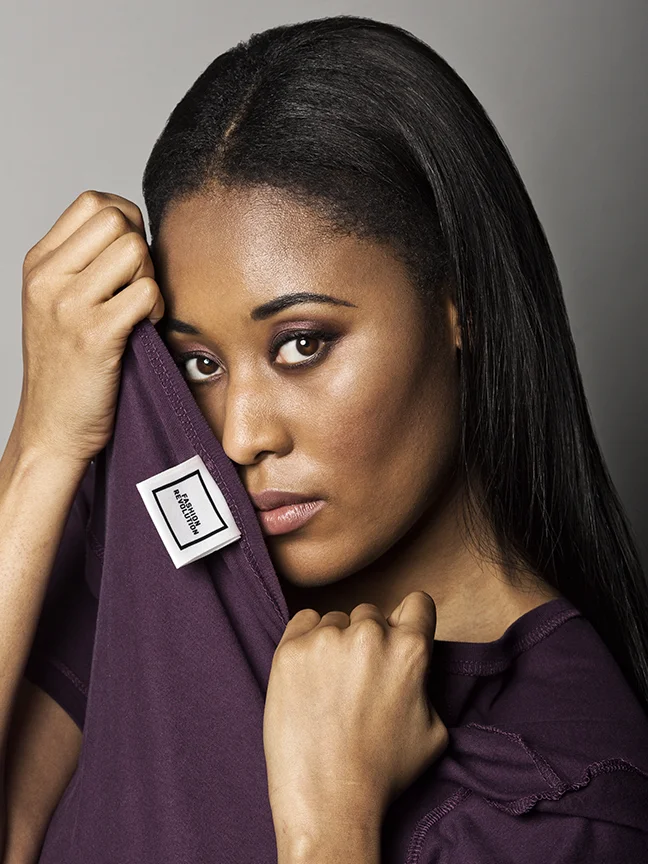Caryn Franklin on the first Fashion Revolution Day
On April 24th, the first anniversary of the Rana Plaza tragedy, Twitter and Instagram was abuzz with the twitter handle @fash_rev and the hashtag #insideout. The campaigning group Fashion Revolution was inviting everyone to wear their clothes inside-out to help start the beginning of an industry-wide transformation towards a more sustainable future.
One of the campaign's key supporters has been fashion commentator Caryn Franklin, former Fashion Editor and Co-Editor of i-D Magazine in the '80s and host of the BBC's The Clothes Show which ran for 12 years in the 1980s. Caryn's interest in sustainable practices in fashion and beyond has been long held and passionate. I spoke to her about why Fashion Revolution Day had to happen.
Bel: Why, in your words, is Fashion Revolution Day so important now?
Caryn: We have now arrived at a situation I never signed up for when I began working in fashion 33 years ago. Looking back to the mid-eighties when I excitedly announced the birth of the high street as the democratization of fashion, I believed it represented great design at affordable prices and improved self-image for lovers of fashion on a limited budget. I never, never anticipated that it would lead to the cruel treatment, impoverished wages and dangerous working environments for the women who supply our clothes. Consumers are not given enough information about where their clothes are sourced and how they get to the high street and this has to change
Bel: What has shocked, surprised and moved you about fashion industry practices?
Caryn: I have just come back from a trip to Bangladesh, where I spoke to women who had lost loved ones and bread-winners in the Rana Plaza building collapse. I heard stories that were the stuff of nightmares. I was told repeatedly that factory owners didn’t care whether conditions were unsafe, that beatings and padlocked safety escapes were the norm.
I also heard that some UK buyers turn a blind eye to the hardship as the company policy, when they talk to factory owners, is often to negotiate the price even lower with the promise of a bigger order or the threat of moving.
Bel: What would you like to see happen to improve practices?
Caryn: We have to join up the dots and place ourselves at the centre of change. The individual is all-powerful here. We cannot continue to ignore the facts if they are made clear to us. Recognition by all of us that we are connected to the millions of garment workers over the other side of the world is crucial. They are not our slaves and we can choose to be part of the solution not the problem.
We can buy less and pay a Fairtrade wage for it or we can buy second hand and vintage. We can ignore industry trends and choose personal style. We can write to the CEO’s of our favourite high street labels and express our disgust and dismay at the lack of humanity from within their company. We can demand transparency of ethical behaviour from the brand before we buy. We are, if we care to be…very powerful indeed.
Support Fashion Revolution Day now and beyond today. Continue to ask shops and brands where their clothes are made; demand greater accountability and action. Log onto www.fashionrevolution.org and explore the other groups campaigning for workers rights in the overseas production of our clothes.


